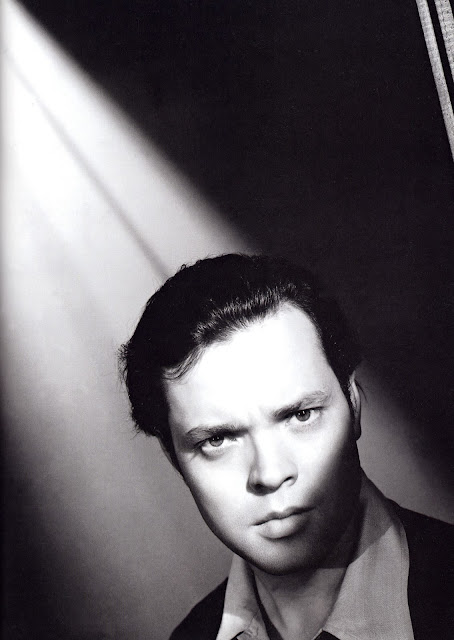But, purely out of a sense of professional courtesy, I felt that I should go see it. So I did. I am forced to wonder if, out of the same sense of professional courtesy, either writer John Orloff or director Roland Emmerich have bothered to see any Shakespeare plays, or were they working from the Cliff Notes?
I am by no means a Shakespearean scholar. I have read no more than a handful of his plays and they have all been in a school or college environment. Never-the-less, I detected a fairly free-wheeling attitude towards his work and its historical context.
It's obviously set in some alternate version of history where Henry V was Shakespeare's first performed play, followed closely by Romeo and Juliet, then Hamlet, Richard III and, finally, King Lear. All in about a year. (It's possibly the same Emmerichian alternate universe where the pyramids were build by aliens riding woolly mammoths).
Okay, so this is a work of fiction and maybe these details aren't that important. After-all, one of the things the film is concerned with is the cloud of doubt that surrounds Shakespeare so, I don't know, maybe the documents that have always told us when the plays were first performed are fake.
Could happen. So, let's leave that and move on.
The mission here was to create an Elizabethan political thriller, concerning the machinations of court (inspired, possibly, by the similarly Machiavellian activities depicted in Elizabeth's dad's court in the hit TV show The Tudors). That, at least, seemed perfectly feasible to my historically-uncultured eye. Indeed, Edward Hogg has a considerable amount of fun playing the villain, Robert Cecil - who has a hump! I imagine some imaginative stage director will already be casting him in a revival of Richard III.
All of this courtly behaviour, however, is portrayed with a lack of conviction and subtlety, which results in it seeming nothing more than camp! Particularly in the case of Rafe Spall who plays the talentless actor called William Shakespeare who becomes the front, the patsy pretending to be the writer. As the film progresses he degenerates from an interesting possibility to a pantomime bad guy.
 |
| So, how do I do the Ifans eyebrow? Is this it? |
Unfortunately, as wafer-thin as his character's motivation is, I would have probably swallowed it, and Ben Jonson's inexplicable willingness to go along with all of the repercussions that arise from the deceit, if only I believed one word coming out of any of the actors' mouths.
 |
| "Dude, even his moustache is, like, as unconvincing as the dialogue." "Totally!" |
This is an unfortunate occurrence when an American script-writer and a German/American director clearly decided they knew more about the way English actors spoke four hundred years ago, than the English actors actually reading the lines. Consequently, there is a general air - and not just in Ifans' performance - where the actors simply don't believe what they're saying.
With one or two exceptions ... Joely Richardson and Vanessa Redgrave are astonishingly similar as young and old Elizabeth ... Leaving one to feel that a time machine had been employed to allow one person to play both ends of their own life.
 |
| Joely Richardson, just 74 years young! |
Apart from Richardson/Redgrave, no one looks like their younger selves (well, okay, David Thewlis is pretty good at playing his younger self) but this makes everything appallingly complicated and you just know that it isn't worth the brain-power of trying to figure out who is meant to be whom.
 |
| Sorry, who did you say you were, again? |
The film is, then, a mess on several levels. Not least because it is hilariously funny in places; a fact which, I imagine, will come as a depressing surprise to the writer and director but not to the cast.
It's just a shame Derek Jacobi decided to take the money (for what must have been just a day's work) because his presence at the beginning, serving the role of the Chorus introducing the drama, lends the film some credibility which it certainly doesn't deserve.
























